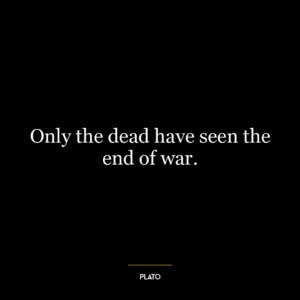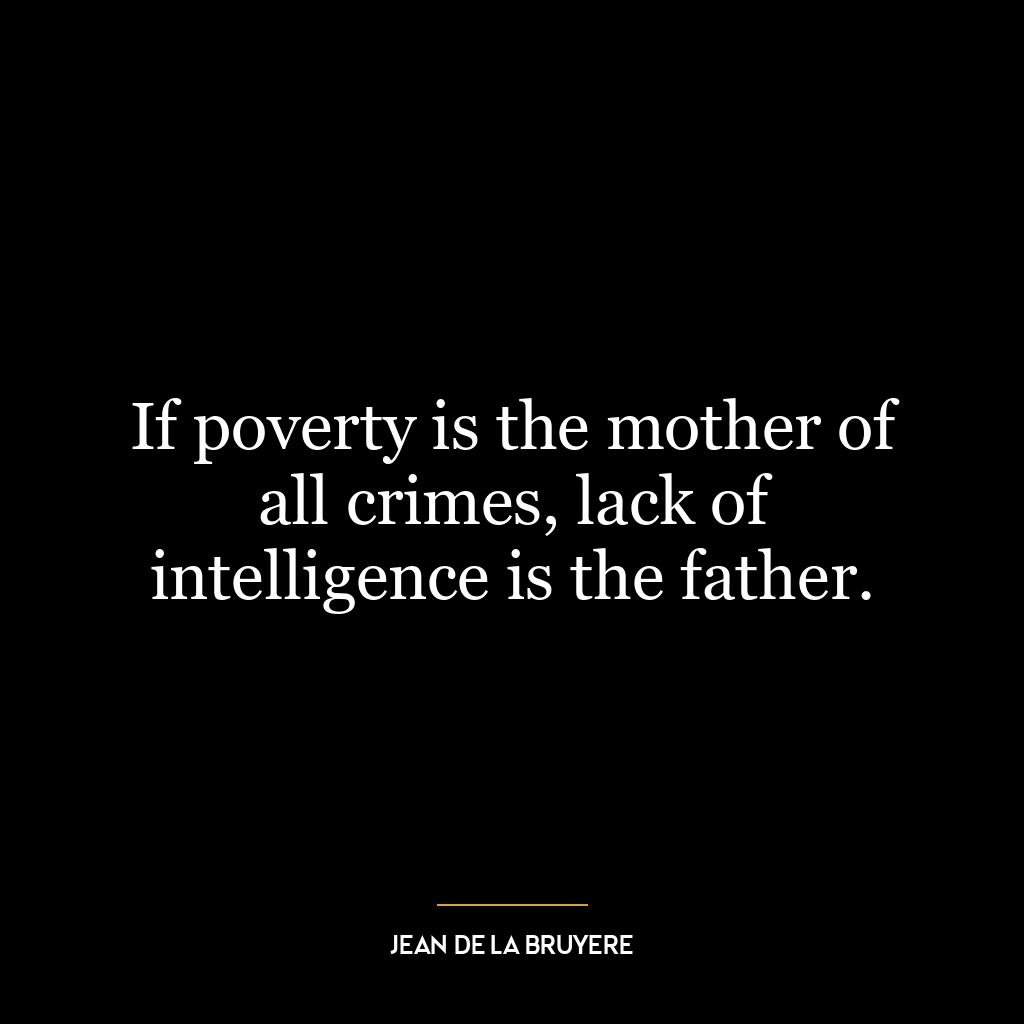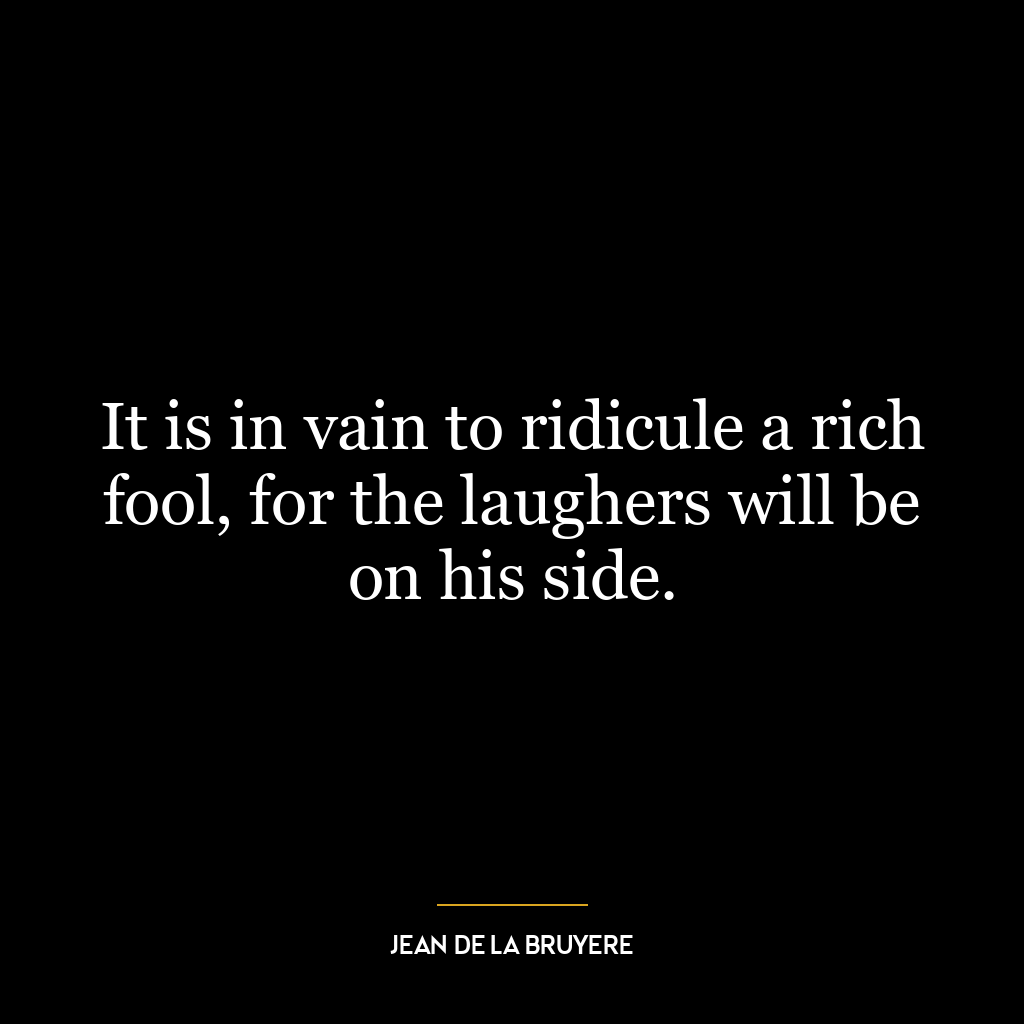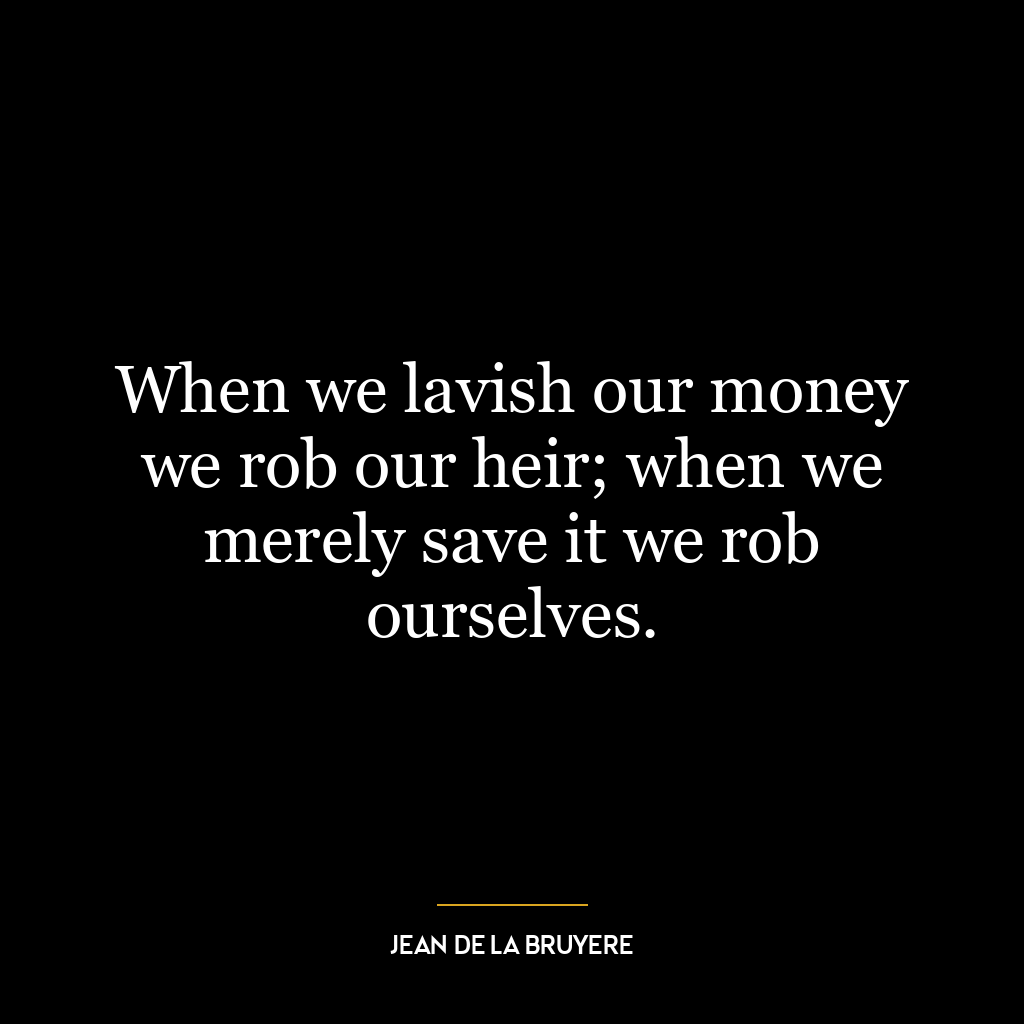Poverty doesn’t come because of the decrease of wealth but because of the increase of desires.
This quote suggests that poverty is not necessarily a result of a lack of resources or wealth, but rather an outcome of excessive desires. It underlines the concept that when our desires, wants, or cravings increase beyond our means, it leads to a state of poverty. The essence of the quote is rooted in the philosophy of contentment and simplicity.
In simpler terms, if we are constantly seeking more, if our desires and wants are always growing and expanding, we will always feel poor, regardless of how much wealth we accumulate. It’s the idea that the more you want, the less you feel you have. It’s a state of mind, rather than a physical or financial state.
Applying this concept to today’s world, we live in a society that often encourages consumerism and the accumulation of wealth, possessions, and status. The quote suggests that this constant striving for more can lead to a sense of poverty, regardless of actual wealth. We can see this in people who, despite having considerable wealth, still feel a sense of dissatisfaction or lack because their desires continue to outpace their acquisitions.
In terms of personal development, this quote could be seen as a call to manage our desires and expectations, to find contentment in what we have rather than constantly striving for more. It’s about understanding the difference between needs and wants, and recognizing that fulfillment and happiness often come from appreciation and gratitude for what we already have, rather than from the ceaseless pursuit of more.
Moreover, it can also be a reminder to focus on non-materialistic desires such as personal growth, relationships, and experiences which can lead to a richer, more fulfilling life. It promotes the idea that we should define our wealth not by our possessions, but by our inner contentment and satisfaction.










